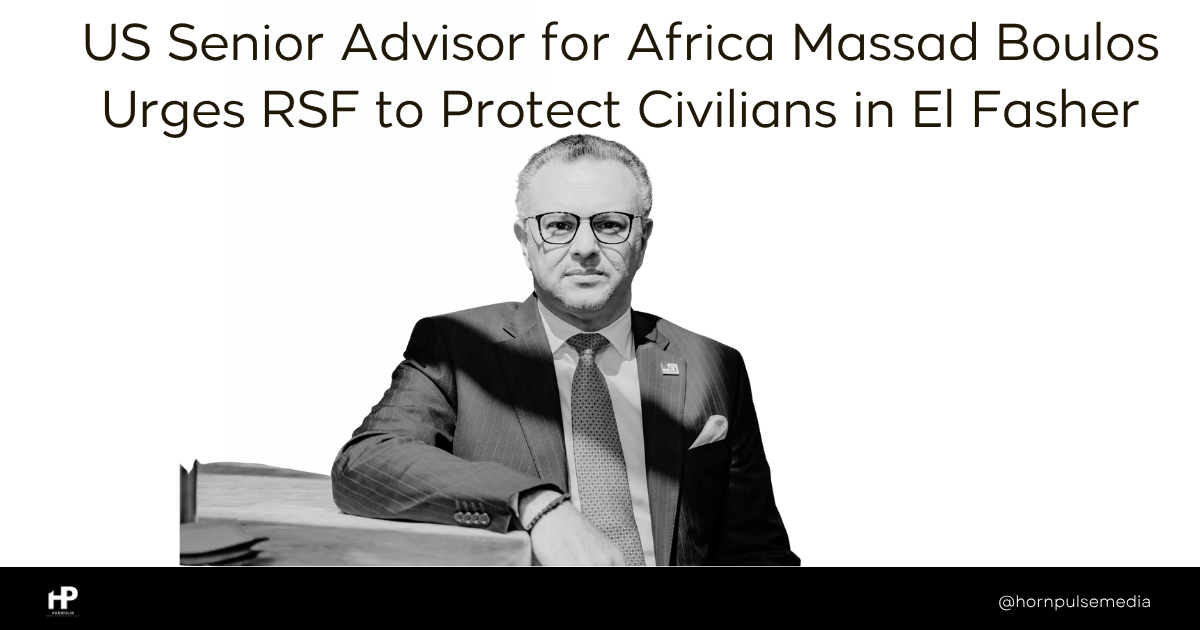
Somalia: The Only Country Aligned with Neither Israel nor Iran
June 17, 2025
Japan to Dispatch SDF Aircraft to Djibouti as Early as This Weekend to Prepare for Evacuation of Japanese Nationals from Iran
June 18, 2025Source: Nation Africa | Compiled by: Horn Pulse
The emergence of SSC-Khaatumo in northern Somalia has reshaped debates around statehood, sovereignty, and legitimacy in the Horn of Africa. Officially recognized as a new federal member state by the Somali Federal Government, SSC-Khaatumo now stands as a direct counter to Somaliland’s decades-long secessionist claims.
The Diplomatic Spark: Somaliland Liaison Office Opens in Nairobi
In June 2025, the self-declared Republic of Somaliland opened a so-called “Liaison Office” in Nairobi—reviving its bid for international recognition. However, this move was firmly rejected by SSC-Khaatumo, which encompasses the regions of Sool, Sanaag, and Cayn. The federal member state denounced Somaliland’s sovereignty claims over these territories as historically, politically, and ideologically invalid.
Rooted in Resistance: SSC-Khaatumo and the Legacy of the Dervish State
According to SSC-Khaatumo officials, their territories were never part of the British Somaliland Protectorate. Instead, they formed the heartland of the anti-colonial Dervish State, one of Africa’s longest-running resistance movements against British and Italian forces.
Officials argue that Somaliland’s claim that it was a unified state that joined with Italian Somaliland in 1960 to form the Somali Republic is historically inaccurate. Minister of Energy, Water, and Minerals Ali Warsame noted, “The Dervish State was never under British control, nor did its clans sign any protectorate agreements with the British. Somaliland’s claims are based on revisionist history.”
The Referendum That Wasn’t
SSC-Khaatumo also rejects Somaliland’s claim that it held a national referendum for independence in 2001. According to the federal state, the vote only took place in Isaaq-majority areas like Hargeisa and Burco—excluding SSC territories entirely. They emphasize that Somaliland only entered the SSC regions in 2007, starting with Las Anod, and never extended into Cayn or most of Sanaag.
During Somaliland’s limited presence from 2007 to 2022, governance was mostly conducted through clan proxies. That period saw political assassinations, intra-clan violence, and lawlessness—conditions that ultimately triggered a popular uprising.
2023 Uprising and the Fall of Somaliland in SSC
A full-blown rebellion began in Las Anod in February 2023 and ended in August 2023 with SSC-Khaatumo forces expelling Somaliland troops from nearly all of the Sool region. After seven months of fierce fighting—including artillery strikes on schools and hospitals—Somaliland militias were driven out, and 400 fighters were captured.
The war left over 2,000 civilians dead, including the renowned Somali poet Jama Kediye, and displaced over 250,000 people. Following the liberation of Las Anod, the Somali Federal Government formally recognized SSC-Khaatumo as the country’s newest federal state. Yet Hargeisa still lays claim to the region.
A Message to the World: Unity Over Fragmentation
SSC-Khaatumo considers itself a guardian of Somali unity and sovereignty. It warns that supporting clan-based secessionist agendas could destabilize not only Somalia but also Africa as a whole. “If the world endorses tribal breakaways, it sets a dangerous precedent for fragmentation across the continent,” they argue.
The SSC-Khaatumo administration calls on the international community to respect Somalia’s territorial integrity and to reject separatist agendas that fuel border disputes and intercommunal violence—threatening the fragile stability of the Horn of Africa.
Note: This report is based on original content published by Nation Africa. Translated and editorially adapted by Horn Pulse.


